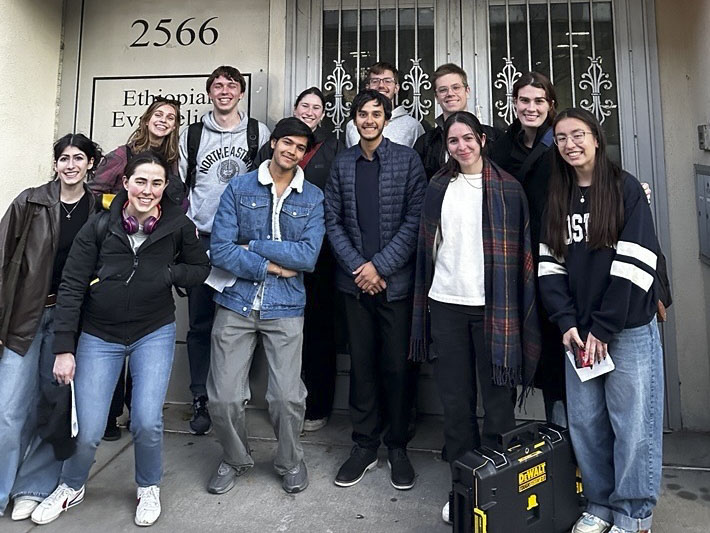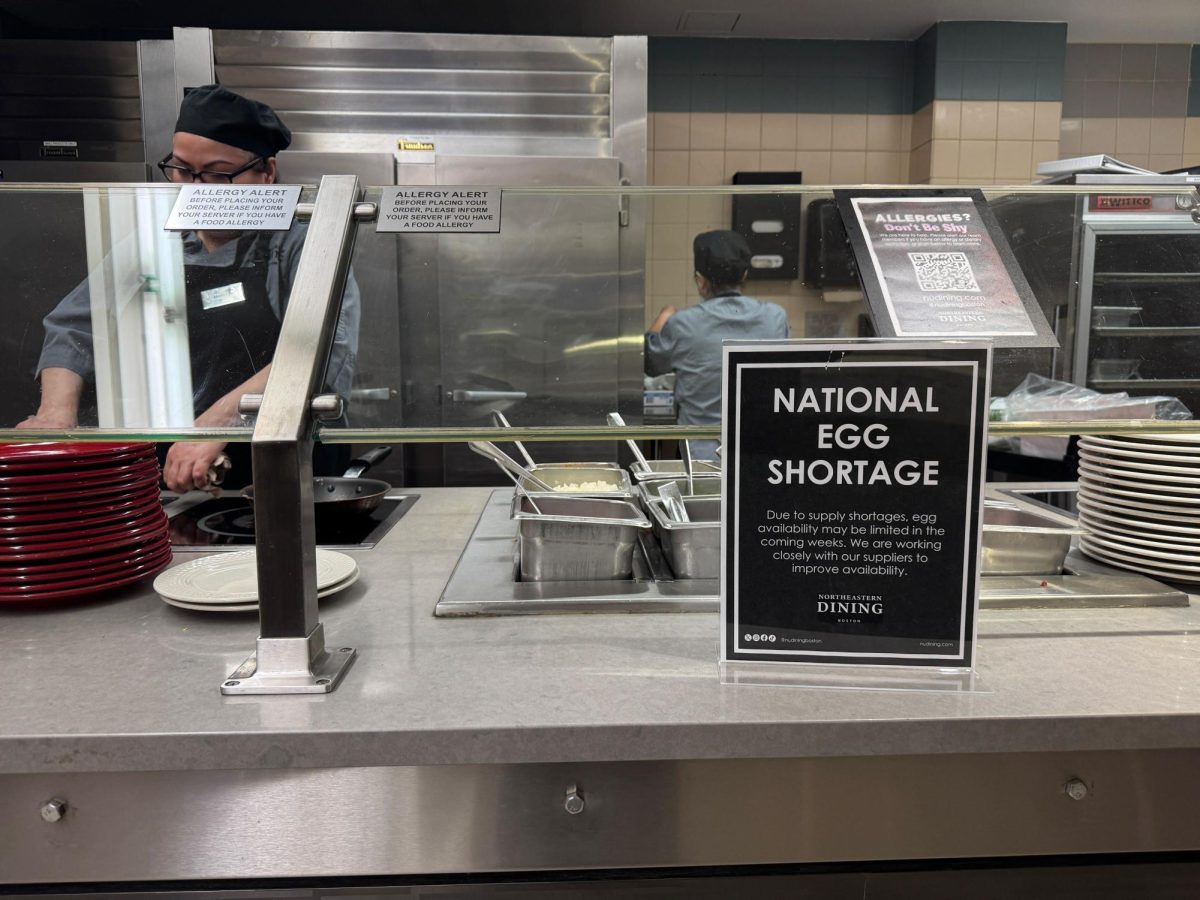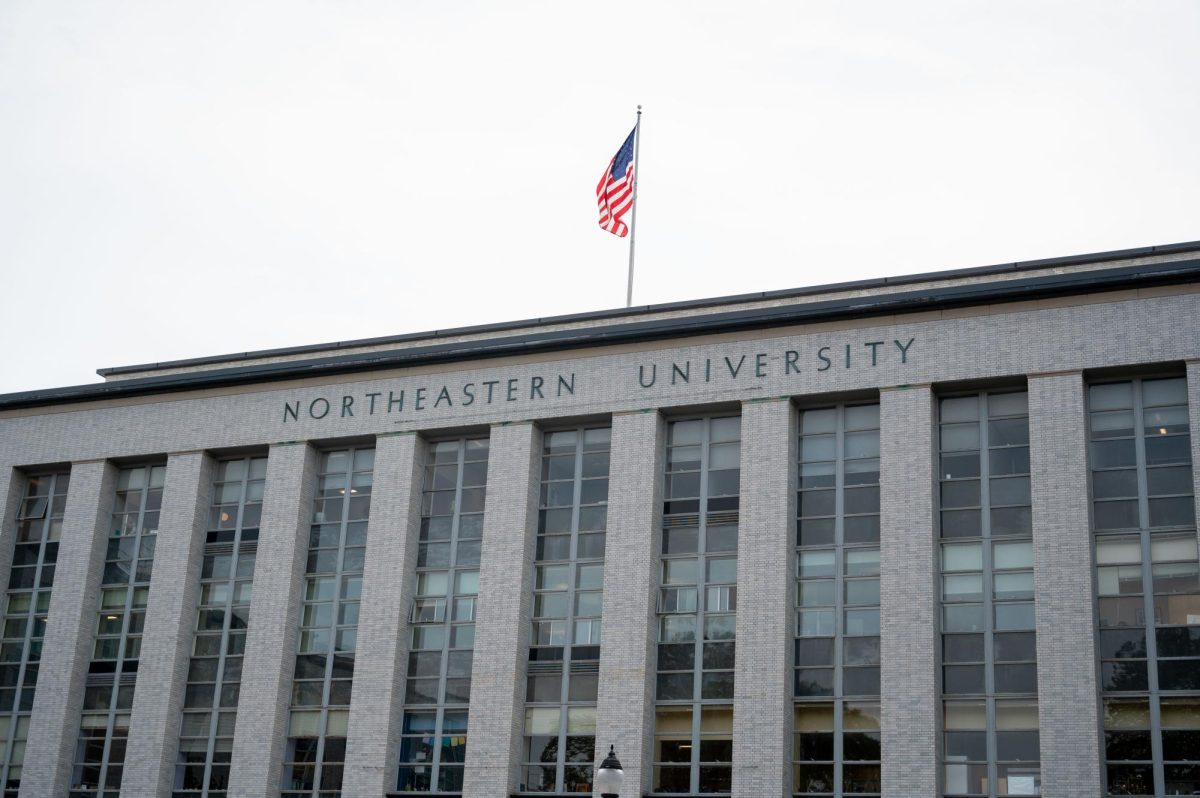This is the first in a five-part series examining students’ experiences with financial aid.
Evan Martinez has worked as a computer programmer, a house cleaner and a clerical worker. He has also done basic electrical wiring, put up shelves and worked on roofs, all just to make ends meet. Martinez is 18, and this week he left Northeastern because he could not afford to stay.
Martinez, a freshman political science major, said he started his career at Northeastern knowing it would be an expensive undertaking, but hoping to pay for it however he could, primarily with loans. Over winter break, Martinez discovered he had been denied all the loans he applied for, because he doesn’t have credit or a qualified co-signer. This situation, not uncommon among students too young to have built a credit report, is more challenging for Martinez, who has no one else to fall back on.
“Coming into it, I never thought I couldn’t get a loan,” Martinez said. “All through high school, everyone always tells you to pay for what you can with scholarships, and get loans for the rest. No one is ever like, ‘Sometimes you don’t get loans.'”
Martinez grew up in Oceanside, Calif., and has been almost entirely self-sufficient since his senior year of high school, when he moved out of the trailer he shared with his mother. His mother has a history of bipolar disorder and alcoholism, which he said eventually made the situation in his home too difficult to handle.
“It finally got to be too much for me to deal with, taking care of her. It was one of those reverse-role situations,” he said.
Martinez never knew his father, although he maintains a close relationship with Tom Steenbock, his mother’s ex-husband. Steenbock, who divorced Martinez’s mother several years ago, agreed Martinez took a lot of responsibility for his mother, particularly after the divorce.
“He felt like he had to take care of her. He was put in a really rough situation, and he was the one who had to take responsibility for things. I think Evan was pretty much responsible for running the household,” Steenbock said.
In order to get out of this home environment, Martinez moved into a small apartment with two roommates, supporting himself mainly by doing computer programming at his friend’s computer company and cleaning houses for extra money. Despite this financial independence, Martinez’s mother’s income was still included in all his financial aid information. He received $9,000 per year from Northeastern in need-based aid, and another $7,700 per year in government subsidized Stafford loans. Although this helped, Martinez still needed to cover the difference of more than $20,000 per year on his own.
“Really, my plan was never to count on her,” Martinez said of his mother. “I was hoping to take an RA position next year, and do whatever I could to ease the costs.”
When Martinez initially applied for financial aid, his mother had a clean credit record, but that changed when she entered a residential treatment facility last summer for her bipolar disorder and alcoholism. “While she was away, none of her bills were paid; that’s why her credit’s so bad,” Martinez said.
Martinez was unable to register for spring classes because he had an outstanding balance for the fall term. He met with his financial aid advisor, Michael Woodward, but said he didn’t get much help from him.
“It was really just, ‘you need to get a loan,'” Martinez said.
He went on to say he felt his financial aid options were limited. “I really felt like Sallie Mae had a choke hold on financial aid at this school,” Martinez said. “I actually had to go find other loans myself.”
Woodward could not be reached for comment, but Seamus Harreys, dean of Financial Services, said the university helps students on a case by case basis.
“It really depends on the individual circumstances of that student and family and the options they qualify for,” Harreys said. “When a student or family is in that situation it’s a fairly difficult situation … there are a variety of educational loans that can help out some students, but it is based on that student’s ability to borrow,” Harreys said.
For students without that “ability to borrow,” the system can be frustrating.
Martinez said his main frustration with financial aid at Northeastern is not knowing where to go.
“I think a lot of the problem with Northeastern is the bureaucracy; I didn’t really know who to go to,” Martinez said. “Even now, with leaving school, I don’t know who to talk to.”
Other students have had trouble with loans, and have experienced the same frustrations. Hadar Steinberg, a freshman undecided major, was unable to apply for a loan before classes began in the fall because she was only 17 years old.
“I didn’t turn 18 until October, and you can’t get approved for a loan, even if you have a co-signer,” Steinberg said.
Like Martinez, Steinberg said her greatest frustration was trying to get answers. “The school tells you to talk to these people, then they tell you to talk to those peopleand it’s all a big circle,” Steinberg said. “It’s just really bureaucratic here, and no one knows what’s going on.”
Steinberg’s situation was further complicated when her mother wasn’t approved for a Parent Loan for Undergraduate Students (PLUS). This left Steinberg unable to pay for her first semester, and like Martinez, she was blocked from registering for spring classes. Although she was able to apply for loans after she turned 18, the loans weren’t posted to her account until after winter break. Without the help of her extended family, Steinberg said her class schedule would have been purged.
“I was really lucky my aunt paid my balance for last semester, which was a couple thousand dollars,” Steinberg said.
Martinez has no such luck. He said his extended family has encouraged his goal of going to college, as he is the first in his family to do so, but is unwilling or unable to help pay.
“I have more family, but they kind of washed their hands of my immediate family,” Martinez said. He said Steenbock was interested in helping him, but is currently unable to.
“I’ve been out of work for six months, and I’ve got mortgage payments. I’m not able to make commitments right now, as much as I’d love to. I’m giving him all the moral support I can right now,” Steenbock said.
Despite his difficult situation, Martinez said he has enjoyed his time at Northeastern, and hopes to return in a year or so, after he has built up some credit of his own.
“It really is a place I would have liked to stay,” Martinez said. “I really enjoyed living in the city and the feel of the campus.”
For now, Martinez has moved in with a friend in Boston. He is looking for work, waiting to hear back from potential employers.
“I’m going to try to work and build up my own credit, take a year, and try to come back, either here or to another Boston school,” Martinez said.
Martinez still aspires to someday earn a doctorate in political science and work at the United Nations. He said some of his favorite memories of his semester at Northeastern involved Model U.N. Friends say that if given the opportunity, Martinez could have been very successful at Northeastern.
“He just seems like he knows what he wants in life and he knows what steps to take to get here. He’ll set a goal, and he works to achieve it. Most people just make them … If everything had worked out financially, he would have really thrived here, I think,” said Honorio Franco, a freshman criminal justice major and a friend of Martinez.
For Martinez, his struggle for an education isn’t over yet. He remains optimistic that he’ll be able to get through this rough patch, just as he has before.
“I’m trying to think of it as a setback,” Martinez said. “I’ve had to buckle down before, and I can do it again.”










